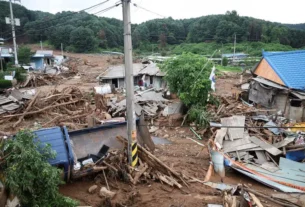JAKARTA, Sept 25 — More than 1,000 students in Indonesia’s West Java province have fallen ill due to food poisoning linked to free school lunches, casting a dark shadow over President Prabowo Subianto’s ambitious multi-billion-dollar nutritious meals programme.
This week alone, four separate incidents were reported across the region, with Governor Dedi Mulyadi confirming outbreaks in West Bandung and Sukabumi. On Monday, 470 students fell sick in West Bandung. By Wednesday, the number had ballooned to 580 additional children, overwhelming local hospitals and prompting authorities to convert sports halls into emergency treatment centers.
Footage aired by local broadcaster Kompas TV captured disturbing scenes: young children writhing in pain on makeshift beds, some receiving treatment outside due to lack of space, and ambulances ferrying patients back and forth in what resembled a wartime triage.
These are not isolated events. Just last week, 800 students in West Java and Central Sulawesi provinces suffered similar fates. According to the Network for Education Watch, at least 6,452 children across Indonesia have been affected by food poisoning since the launch of the programme in January.
The Free Nutritious Meals Programme, considered President Prabowo’s flagship social initiative, aims to reach 83 million Indonesians by the end of this year, with its budget expected to double to 171 trillion rupiah (RM43 billion) next year. But with repeated health incidents, serious questions are now being asked about food safety, quality control, and oversight.
Dadan Hindayana, head of the National Nutrition Agency, said food preparation facilities involved in recent poisoning cases have been suspended. But experts warn that poor planning—like preparing meals the night before or using long-distance kitchens—may continue to pose serious risks.
“The food is cooked early, sometimes even the night before. It’s still warm when packed into trays and then closed tightly. That makes it spoil faster,” explained Governor Mulyadi. “We must evaluate the programme handlers, but more importantly, we must address the trauma these children now face.”
Due to the severity of the situation, West Bandung has now been placed under health emergency status, enabling emergency provincial funding to manage the crisis.





